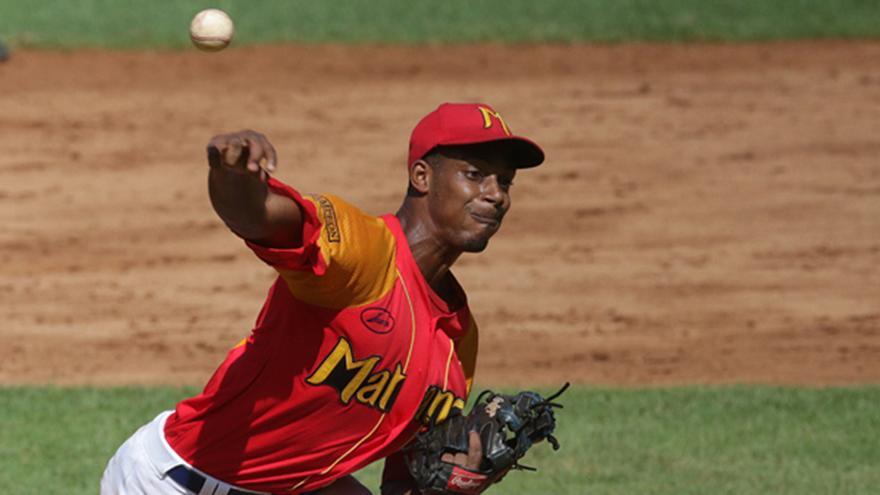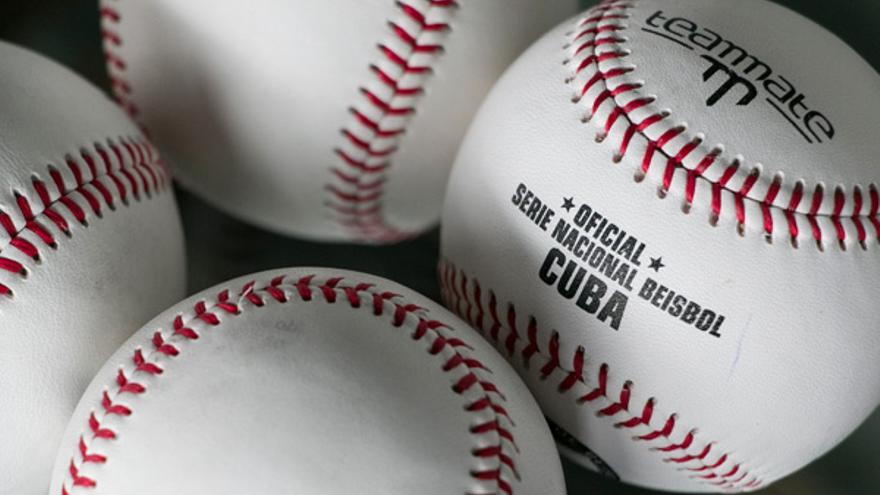
![]() 14ymedio, Ángel Salinas, Mexico, 27 May 2023 — The Cuban Baseball Federation (FCB) is paying more than double for the official balls of the Major Leagues of the United States. The Island paid 12 dollars for each ball of the Italian brand TeamMate in 2020, according to figures from the FCB treasurer, Luis Daniel del Risco, while those manufactured by the Rawlings company for the Major Leagues since 1977 cost a little more than five dollars.
14ymedio, Ángel Salinas, Mexico, 27 May 2023 — The Cuban Baseball Federation (FCB) is paying more than double for the official balls of the Major Leagues of the United States. The Island paid 12 dollars for each ball of the Italian brand TeamMate in 2020, according to figures from the FCB treasurer, Luis Daniel del Risco, while those manufactured by the Rawlings company for the Major Leagues since 1977 cost a little more than five dollars.
As usual, Del Risco blamed the “blockade” for the cost of the balls, which had to be “bought in China and with transportation” cost between five and seven dollars more than their value. “Here we could buy them for less, but we have to look for them in far-away places, and they are quite expensive,” he said.

For five years, the Island’s sports industry has had serious difficulties in producing the balls. According to the official, due to the “lack of leather for the ball, the lack of thread and adequate glue,” the delivery of 100,000 balls (70,000 synthetic and 30,000 leather) per year to meet the needs of 16 teams of the National Series and eight other categories in 547 sports centers was not fulfilled.
Cuba chose TeamMate to try to overcome the crisis. It’s an Italian company based in San Marino and linked to Riccardo Fraccari, president of the World Baseball and Softball Confederation (WBSC). He is close to Antonio, a son of Fidel Castro, and the man who pulls the strings for baseball in Cuba.
According to Radio and Television Martí, in 2021 the San Marino news website Libertas.sm revealed that Fraccari and the WBSC were being investigated for alleged money laundering. The publication indicated that the Panamanian sports federation complained about the price of the balls provided by the Confederation.
A tax inspection made it clear that “the money that was paid for the TeamMate balls was much higher than the real market value,” the media stressed. “Two million euros were seized at the WBSC headquarters in Lausanne, Switzerland,” although it was later revoked and reduced to the amount of 258,000 euros, which has maintained to date the accusation of money laundering.
Seeing how a baseball is made is so satisfying.
A lot more goes into baseballs than you thought! ⚾️ pic.twitter.com/VWqzXkwepP
— Insider (@thisisinsider) October 8, 2017
Haití, separada de Cuba por el estrecho paso de los Vientos, llegó a ser considerado entre 1969 a 1990 como el principal proveedor de pelotas de béisbol en el mundo, cuando en el país no existe identidad por este deporte. En esta región caribeña se establecieron varias empresas dedicadas a maquilar con mano de obra barata miles de bolas. Las compañías McGregor y Rawlings fueron de las beneficiadas de este modelo de explotación impulsado por el dictador haitiano Jean-Claude Duvalier, señaló a The New York Times, Josh DeWind, coautor de Aiding Migration: The Impact of International Development Assistance on Haiti.
Haiti, separated from Cuba by the narrow Straits of Winds, came to be considered between 1969 and 1990 as the main supplier of baseballs in the world, when this sport had no identity in the country itself. In this Caribbean region, several companies dedicated to making thousands of balls with cheap labor were established.
The McGregor and Rawlings companies were the beneficiaries of this model of exploitation driven by Haitian dictator Jean-Claude Duvalier, as told to The New York Times by Josh DeWind, co-author of Aiding Migration: The Impact of International Development Assistance on Haiti. Shielding itself from the political instability of Haiti, Rawlings closed the plant in Port-au-Prince in 1990, where about 1,000 Haitians worked. It moved its production to Turrialba (Costa Rica), where it produces 2.4 million balls a year.
The company pays $1.60 an hour and the workers have 10-hour days. There they shape the “cork and rubber centers, the Holstein cowhide of Tennessee and the wool fiber of New Zealand that make up the balls that are sent tax-free to the factory,” Reuters published.
Rawlings also supplies balls to the Mexican Baseball League. In 2020, it agreed to a price of $64.40 for 12 balls. That is, each piece costs $5.33, less than half of what Cuba disbursed for each TeamMate ball.
The price of TeamMate also exceeds that of the Franklin Sports brand in the United States, at the same level as the Italian brand, which offers national leagues an average price of 12 balls for 52 dollars.
The balls of the Italian brand TeamMate began to circulate in 2020 on the Island. They replaced the Japanese Mizuno 200, and these in turn replaced the so-called “dull” Connection, a “ball of national production with a very poor bounce,” Cubalité published.
In the first 40 games of the 60th season of the National Series, TeamMate’s ball caused controversy due to the fact that the long-distance batting was more frequent than usual in Cuba. “Since its establishment, home runs have been happening more than usual, and many are already starting to wonder if we are on our way to establishing a new brand of fly balls or frequency of home runs,” the same publication said.
The controversy closely follows the Italian company TeamMate. After failing to supply uniforms, which caused the Elite League to be delayed last October, it has now delivered only half of the balls necessary for the current National Series. Thus, the league had to resort to those of the Batos brand, which “is not made in Cuba, but acquired from a supplier abroad who agreed to give it that name,” Cubadebate said.
Translated by Regina Anavy
____________
COLLABORATE WITH OUR WORK: The 14ymedio team is committed to practicing serious journalism that reflects Cuba’s reality in all its depth. Thank you for joining us on this long journey. We invite you to continue supporting us by becoming a member of 14ymedio now. Together we can continue transforming journalism in Cuba.
